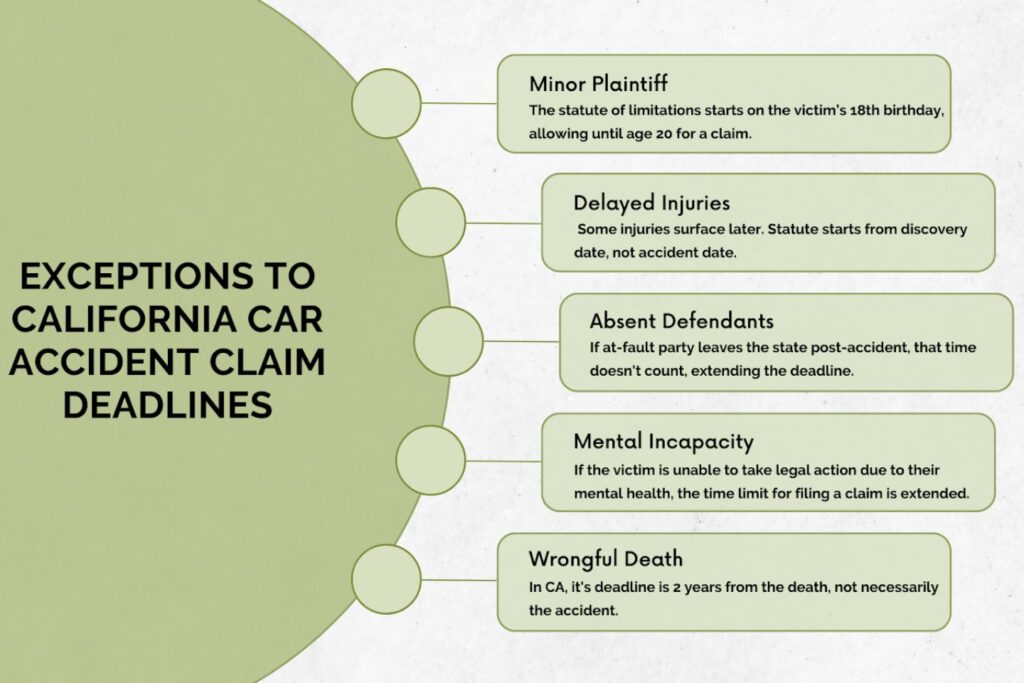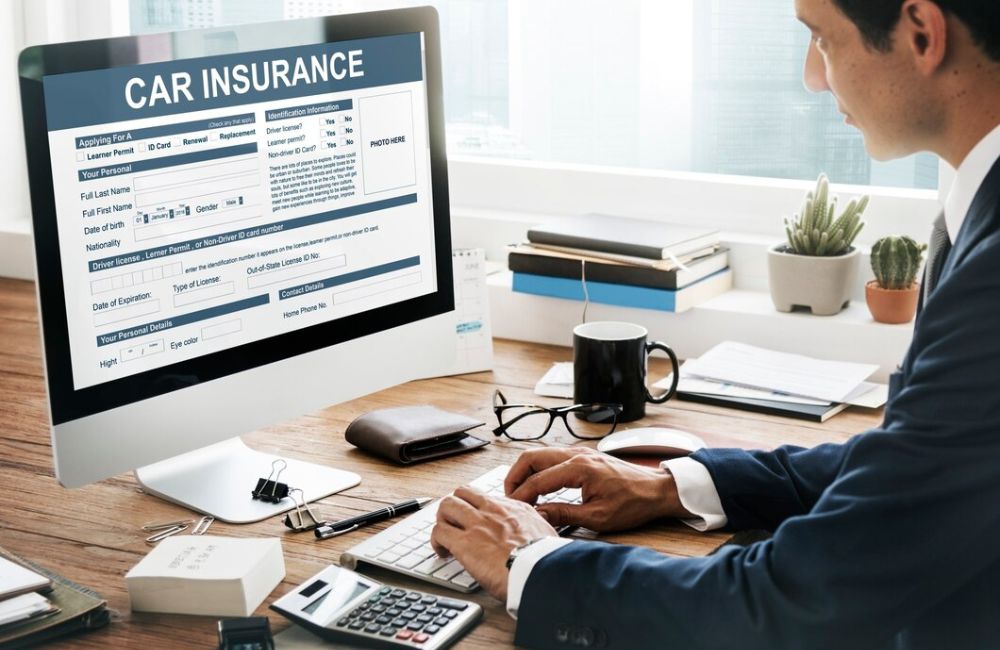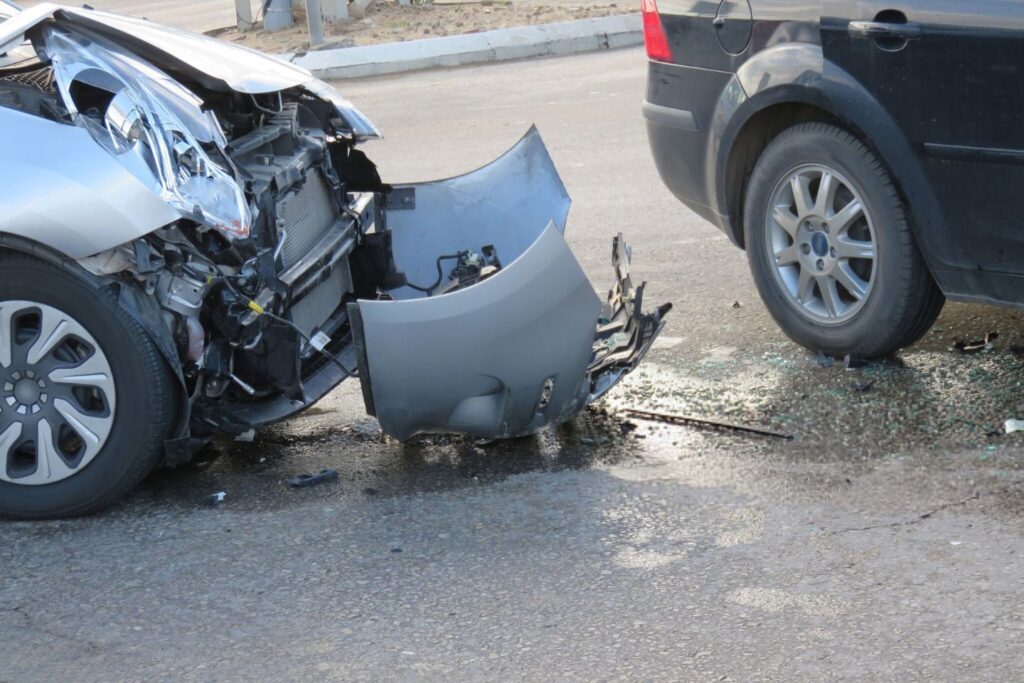Navigating the aftermath of a Hayward car accident can be overwhelming, especially when faced with the reality that such incidents led to 351 total fatalities in 2021 alone. This figure makes it pivotal for victims to equip themselves with relevant legal knowledge.


If you have been involved in a car accident in Hayward, remember that you are not alone. Our comprehensive guide breaks it all down for you: from immediate steps to relevant legal codes and common mistakes to avoid.
We aim to equip you with the knowledge you need to navigate the legal landscape after a car accident in Hayward effectively, ensuring you’re prepared to seek the compensation you deserve.
Immediate Steps to Take After a Hayward Car Crash


After a car crash in Hayward, your actions can significantly affect the outcome of any future claims or legal proceedings. Here’s a guide on what to do right after an accident.
- Check for Injuries: Prioritize checking yourself and others for injuries. If anyone is hurt, call 911 immediately.
- Move to Safety: If the accident is minor and there are no serious injuries, move vehicles to the side of the road to avoid blocking traffic.
- Contact the Police: Even for a minor collision, a police report can be invaluable. Dial the Hayward Police Department or local law enforcement.
- Obtain a Police Report: Request a copy of the police report for your records. This will be crucial for insurance and legal purposes.
- Take Photos and Videos: Document the accident scene, vehicle positions, traffic signs, and any damages with your smartphone.
- Exchange Information: Politely gather names, addresses, phone numbers, insurance details, and vehicle descriptions from all parties involved.
- Medical Evaluation: Even if you feel fine, some injuries show up later. Visit a doctor as soon as possible for a thorough check-up.
- Document Your Injuries: Keep a record of any medical evaluations, treatments received, and how the injuries impact your daily life.
- Notify Your Insurance: Contact your insurance company to report the accident. Be factual about the events but avoid admitting fault or giving detailed statements without legal advice.
If you’ve suffered injuries in a car accident, we’re here to assist. The Personal Injury Center specializes in connecting victims with experienced personal injury attorneys. Reach out today to pursue the compensation you’re entitled to.
Understanding the Statute of Limitations in Car Accident Claims
The statute of limitations is a crucial legal concept that sets the timeline after an event within which legal proceedings may be initiated. When it comes to car accidents, understanding this time frame is essential for protecting your right to compensation.
Basic Time Frames
- Personal Injury Claims: In California, victims of car accidents have two years from the date of the accident to file a lawsuit against the at-fault party. This includes any claims for injuries sustained in the accident, whether physical or psychological.
- Property Damage Claims: For damage to your vehicle or any other personal property, California law allows three years from the date of the accident to initiate a claim.
- Contractual Claims: If your claim also involves a breach of contract (such as an insurance policy), the timeline may extend to four years, depending on the contract terms.
- Government Claims: When your car accident involves a government vehicle or is due to the negligence of a city, county, or state government agency in California, the rules change. You have six months to file a preliminary claim, which is a formal notification to the relevant government entity about your intent to sue.
Exceptions to the Rule
Several circumstances can modify these standard statutes, providing extensions in specific situations.


- Minor Plaintiffs: For individuals under 18 at the accident time, the statute of limitations doesn’t start until their 18th birthday. This means a minor has until they turn 20 to file a personal injury claim.
- Delayed Injuries: Not all injuries manifest immediately post-accident. In cases where injuries are discovered later, the statute may start from the discovery date, rather than the accident date.
- Absent Defendants: If the at-fault party leaves the state for a period after the accident, that time may not count towards the statute of limitations, effectively extending the deadline.
- Mental Incapacity: If the victim is mentally incapacitated and unable to initiate legal action following the accident, the statute of limitations may be paused until the incapacity is resolved.
- Wrongful Death: Claims for wrongful death, including those resulting from car accidents, often have a different time frame. In California, the statute of limitations for these claims is two years from the death date, which might not be the same as the accident date.
Why the statute of limitations is Important: The statute of limitations is designed to ensure fairness in the legal process. Over time, evidence may become lost or less reliable, and memories may fade, making it difficult to accurately assess claims. However, it also serves as a critical deadline for victims seeking justice and compensation. Missing this deadline can result in the loss of your right to sue, making it impossible to receive compensation for your injuries or property damage.
Legal Codes for Hayward Car Accident Victims
Navigating the aftermath of a car accident in Hayward means dealing with various legal codes and regulations. Understanding these can provide clarity on your rights and obligations. Here’s a breakdown of relevant legal codes and their implications for car accident victims.
Basic Speed Law
The Basic Speed Law (California Vehicle Code 22350) prohibits driving faster than is safe for current conditions. In the event of an accident, proving another driver violated this law can directly support your claim.
An example of a violation of the Basic Speed Law can be speeding during heavy rain. Evidence such as traffic camera footage, witness statements, and accident reconstruction can be vital in establishing such violations.
Mandatory DMV Reporting
California Vehicle Code 16000 states that after any accident resulting in injury or death, California mandates a DMV report within ten days. This report is a crucial document that can affect both the legal and insurance processes.
Failing to adhere to this requirement can lead to severe consequences. One of the most immediate repercussions is the potential suspension of your driving license by the DMV. This affects your mobility and can complicate your ability to secure compensation for the accident.
Liability Insurance Requirements


Under California Insurance Code 11580.1b, all drivers are legally required to carry minimum amounts of liability insurance to cover damages or injuries they may cause in an accident. This mandate is crucial for ensuring that victims of car accidents receive financial compensation.
Specifically, the minimum liability insurance coverage required in California is as follows.
- $15,000 for injury/death to one person: This covers medical expenses, lost wages, and pain and suffering for a single individual injured or killed in an accident you cause.
- $30,000 for injury/death to more than one person: This total coverage extends to injuries or deaths of multiple people in the same accident, with the cap for any single individual still at $15,000.
- $5,000 for property damage: This amount is designated for repairs to vehicles or property damaged in an accident you’re responsible for.
These minimum coverage amounts are designed to ensure that drivers can at least partially compensate others for damages or injuries caused by their negligence. However, it’s important to note that the cost of injuries and property damage often exceeds these minimums, leaving gaps in potential compensation.
Don’t face the aftermath of a car crash alone. Trust the Personal Injury Center to link you with knowledgeable personal injury attorneys who can advocate for your rights. Reach out today for support and guidance.
Comparative Fault in California
California Civil Code Section 1714 states that California’s comparative fault system can adjust compensation based on your contribution to the accident. For example, if found 10% at fault in an accident with $100,000 in damages, your compensation could be reduced to $90,000. Presenting strong evidence to minimize your fault percentage is key.
Uninsured Motorist Coverage
Insurance Code 11580.2 plays a crucial role in protecting California drivers against the risks posed by uninsured and underinsured motorists. This statute mandates that all auto insurance policies offered in the state include provisions for uninsured motorist (UM) and underinsured motorist (UIM) coverage.
UM coverage is crucial in scenarios where the at-fault driver lacks insurance entirely, providing you with a safety net for recovering damages. UIM coverage becomes critical when the at-fault driver’s insurance limits are insufficient to cover the full extent of your damages. This coverage ensures that your medical expenses, lost wages, and other costs are addressed, up to the limits of your policy.
DUI Laws
Driving under the influence (DUI) of alcohol or drugs is a serious offense in California, governed by Vehicle Code 23152. Victims of DUI accidents may be entitled to punitive damages, intended to punish the at-fault driver and deter future misconduct. They may also be entitled to compensatory damages for injuries and losses.
Gathering evidence such as police reports, breathalyzer results, and witness statements is crucial for substantiating DUI claims.
Hit and Run Accidents
California Vehicle Code 20001 addresses the serious nature of hit-and-run accidents, where a driver involved in an accident resulting in injury or death leaves the scene without providing necessary information or assistance to the injured parties. This law mandates that all drivers involved in such accidents must immediately stop at the nearest location which will not block the traffic or otherwise jeopardize the safety of other motorists.
Drivers are required to provide their name, address, and vehicle registration details to the injured party, witnesses, or law enforcement officers on the scene. Additionally, they must offer assistance to any person injured in the accident, which includes calling for medical help if it’s apparent that treatment is necessary or if it’s requested by the injured person.
Common Mistakes to Avoid After a Hayward Car Accident


It’s crucial to navigate the aftermath of a car crash with caution to protect your legal rights and maximize your potential for compensation. Avoiding common mistakes can significantly impact the outcome of your case.
Here’s an overview.
- Ignoring Symptoms of Delayed Injuries: Some injuries, such as whiplash or internal trauma, may not manifest immediately after the accident. Pay attention to any delayed symptoms and seek medical attention promptly to document these injuries for your claim.
- Ignoring Mental Health Compensation: Many car accident victims overlook the impact of emotional distress, anxiety, PTSD, and other mental health issues resulting from the trauma of the accident. Failure to seek compensation for mental health treatment and counseling can lead to significant long-term effects on your well-being and quality of life.
- Admitting Fault at the Scene: Apologizing or admitting blame can be detrimental. Statements made at the accident scene can be used against you, affecting fault determination and compensation eligibility.
- Giving Recorded Statements to Insurers: Providing a recorded statement to an insurance company without legal advice can be risky. You might make statements that could be interpreted against your interest, impacting your claim’s valuation.
- Accepting Early Settlement Offers: Insurance companies often propose quick settlements to minimize payouts. Accepting an offer without understanding the full extent of your injuries and damages can result in compensation that’s insufficient to cover long-term costs.
- Posting on Social Media: Sharing details or photos related to your accident on social media platforms can compromise your claim. Insurance adjusters and defense attorneys might use this information to challenge the severity of your injuries or your account of the accident.
After a car accident, legal guidance is crucial. Let the Personal Injury Center connect you with skilled personal injury attorneys in your region. Contact us now to take the first step toward seeking the compensation you deserve.
Key Takeaways
|
Frequently Asked Questions
What happens if you get hit by someone without insurance in California?
If hit by an uninsured driver in California, you may rely on uninsured motorist coverage from your own policy or pursue legal action against the at-fault driver for compensation.
Who is liable for a car accident in California?
In California, liability for a car accident is determined based on who was at fault for the collision. The party responsible for causing the accident is typically held liable for resulting damages.
How much can you get for a car accident settlement in California?
The amount you can receive for a car accident settlement in California varies depending on factors such as the extent of injuries, property damage, and insurance coverage limits.
What happens if you don’t call the police after an accident in California?
If you don’t call the police after an accident in California, you may risk losing valuable evidence for your claim and encounter challenges when filing insurance claims or pursuing legal action.



